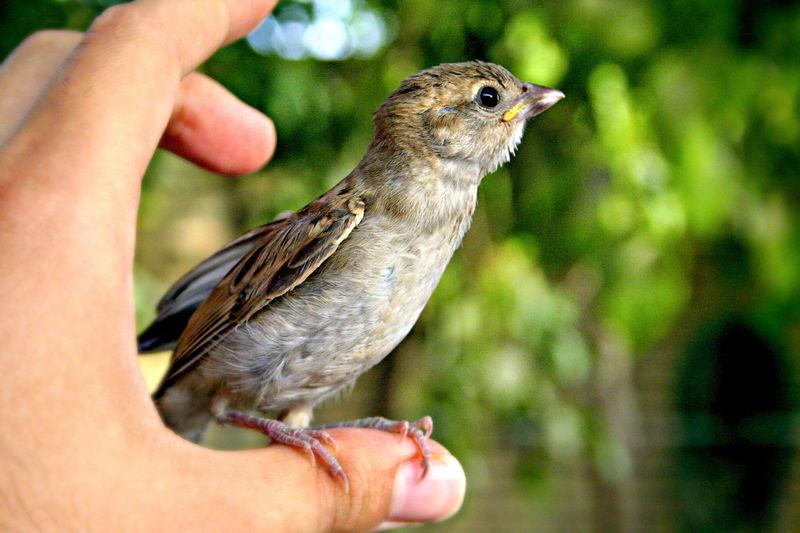If asked, George Hudler will excitedly say the greatest events in the history of mankind – from Moses finding the Ten Commandments, to the Confederate states losing the Civil War, to Mark McGwire’s record-breaking home run – are all the result of fungi.
“I try to relate various aspects of the fungi kingdom to everyday life, and one of the things I like to do is have people think of the historical side of fungi,” he said.
Hudler, a professor and chair of Cornell University’s Department of Plant Pathology, will argue that microbes in the Kingdom Fungi are the root cause of many of history’s great moments in his presentation Thursday.
“Great Moments in History and How Fungi Got Us There,” will take place at 8 p.m. in Memorial Student Center 212.
Hudler’s lecture is part of the 15th annual Program for the Biology of Filamentous Fungi Symposium, sponsored by the Department of Plant Pathology and Microbiology, the Department of Biology and the faculty of genetics.
The University of Notre Dame Football team would not be a powerhouse among football if it were not for fungi, Hudler said.
“The connect is that if it wasn’t for the Irish potato famine, then the Catholic Church wouldn’t have emerged as a power in the nation, and Notre Dame wouldn’t have been built,” he said.
Hudler said scientists speculate the largest and oldest organism on the planet is a fungus. The fungus lives underground in Malheur National Forest in eastern Oregon and covers an area larger than 1,600 football fields.
Fungi are found in many aspects of everyday life, Hudler said, such as bleu cheese and mushrooms. Bread and beer are produced by yeast, which is also a fungus, he said.
“And then of course people have things like athletes foot, and of course just the mushrooms you see coming up around campus,” Hudler said.
Hudler grew up in northern Minnesota. He received his bachelor’s in forestry and his master’s in plant pathology from the University of Minnesota, and holds a doctorate from Colorado State University.
Hudler has worked at Cornell since 1976, where he teaches pathology of trees and shrubs, and the popular course, pathology 201, better known as “Magical Mushrooms, Mischievous Molds.” The course, considered a legend at Cornell, earned Hudler a Chancellor’s Award for Excellence in Teaching and a feature article in Rolling Stone magazine.
“It’s pretty crazy (how popular the course has become),” Hudler laughed. “I have 294 students this semester, and I’m playing hooky this week to be down here.”
His book, “Magical Mushrooms, Mischievous Molds,” is used in the A&M bioenvironmental science class, molds and mushrooms, and is a general interest read, said Heather Wilkinson, an associate professor in the Department of Plant Pathology and Microbiology.
“There is a subculture interested in fungi,” she said. “I think he’s got a little bit of a cult following when it comes to that. At least with mushrooms, (people) want to understand which are good to eat.”
At A&M, 13 research labs are involved in the study of fungi, Wilkinson said.
“Texas A&M has probably the largest concentration of laboratories where (researchers) study filament fungi,” she said.
A&M’s fungal research includes topics such as circadian clocks – the biological clock that regulates many aspects of metabolism, physiology and behavior in humans and other organisms – as well as phosphate transfers, cell biology, and plant fungus interactions and development.
“Some of (the research) involves agriculture, but some of it is really basic science,” Wilkinson said. “Fungi represent model systems for understanding genetics, biology, ecology and evolution.”
Fungi are important because they represent major pathogens and are involved in almost all-important nutrient processes on Earth, Wilkinson said.
“A lot of what goes on in any living cell goes on in a fungus,” Wilkinson said. “And it’s pretty easy to take care of … (Fungi) can be propagated in the lab and observed pretty readily. It lets us set up experiments that would be harder to do with animals and plants.”
For more information on the symposium, visit http://pboff.tamu.edu/
History rooted in fungus
April 19, 2006

0
Donate to The Battalion
$1065
$5000
Contributed
Our Goal
Your donation will support the student journalists of Texas A&M University - College Station. Your contribution will allow us to purchase equipment and cover our annual website hosting costs, in addition to paying freelance staffers for their work, travel costs for coverage and more!
More to Discover








